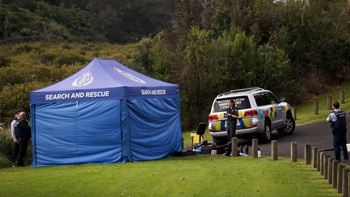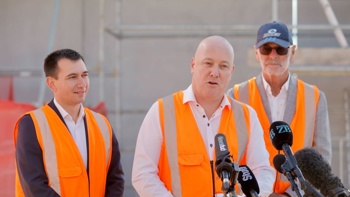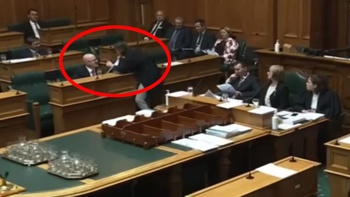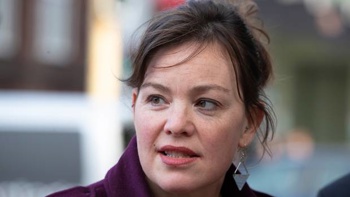
Health Minister Andrew Little wants nursing students to be paid for hospital placements “as soon as possible”, with officials actively considering significant reforms.
“We have to do better”, Little told Newstalk ZB.
“It’s now under active consideration, and something I’d definitely like to see.”
It comes as the country faces severe shortages in the sector, with some workers so burned out and stretched that they’re worried about keeping patients safe.
To become a registered nurse in New Zealand, students must complete 1,100 hours of placements in hospitals and ‘real’ clinical settings.
But as it stands, that work is unpaid.
A petition calling for student nurses to be paid for their placement hours was launched earlier this year, and has garnered more than 17,000 signatures.
It maintains affordable education and paid labour is needed “to stop the status quo train heading towards disaster.”
Little agreed the Government has work to do, to keep those studying in the profession.
“Nursing graduates have to do their final practical period in a hospital, that’s where we see the biggest drop off of nursing students.”
- National's plan for more foreign workers, students, tourists
- Exclusive: Student nurses intake stalls, pleas to 'reverse trend'
- Students called to short-staffed hospital, asked to do suicide watch
He said there are many associated costs with doing in-hospital practicums, including transport and, potentially, living costs.
Little said the Government needs to address that, signalling changes over the coming months.
“It is going to require for them [nursing students] to get some financial support while they’re doing that work.
“We need as many New Zealand-trained nurses as possible, and particularly Māori and Pacific, where we have a huge shortage”, he said.
But National won’t explicitly back the proposed move – its health spokesman Shane Reti was sceptical of a wage approach to student nurses.
“I understand the principle, but we’re exploring other ways to support nurses to completion”, Reti said.
“They’re in training, they don’t have full responsibility, let’s remember that.”
He posed the question that if nursing students were to be paid, why not others, like medical school students.
“There could be critical industries that have shortages as well - diesel mechanics, for example, should we be supporting them in a similar way?”
But Infometrics Principal Economist Brad Olsen said paid placements seem like a “sensible way, to lower the barrier and encourage more [student nurses] to stick around.”
And new figures reveal more students are picking up a nursing textbook than at any time in the last decade.
Infometrics analysis of Ministry of Education data shows 16,365 people were predominantly enrolled in a nursing course during 2021, up from about 15,000 student nurses the previous year.
That’s a reversal of fortunes for the Government, after a Newstalk ZB/Infometrics investigation found the number of those studying nursing was stagnating, and in 2020, had hit its lowest point in years.
Olsen said the rising enrolment figures were “a really strong encouraging sign, but we haven’t solved the nursing challenge”.
It’s also clear the bump in enrolments will take time to filter through into extra nurses on the ground.
In 2021, 4,925 domestic and international students graduated with a nursing degree - broadly in line with completions over recent years.
Figures obtained through written questions by the National Party show only 3,667 were granted a new annual practising certificate that same year.
Student nurses have previously told the Herald low rates of people studying were partly due to understaffing and poor pay that leads to burnout.
One student, who wanted to remain anonymous, said she had seen many of her classmates drop out of the course, because they felt they would “never be able to buy a house or live a comfortable lifestyle”.
Edit Infeti said nurses are currently the “greatest need” for the country’s health workforce, and a “precious commodity.”
“I have to believe that the system is still there for you, but it’s a very fragile safety net. The nursing sector is in crisis.”
Reti also took a personal jab at Little, who once accused the nurses’ union of speaking with a “forked tongue”.
“When that relationship is so disastrously broken, it’s hard to see substantive progress anytime soon.”
Take your Radio, Podcasts and Music with you









